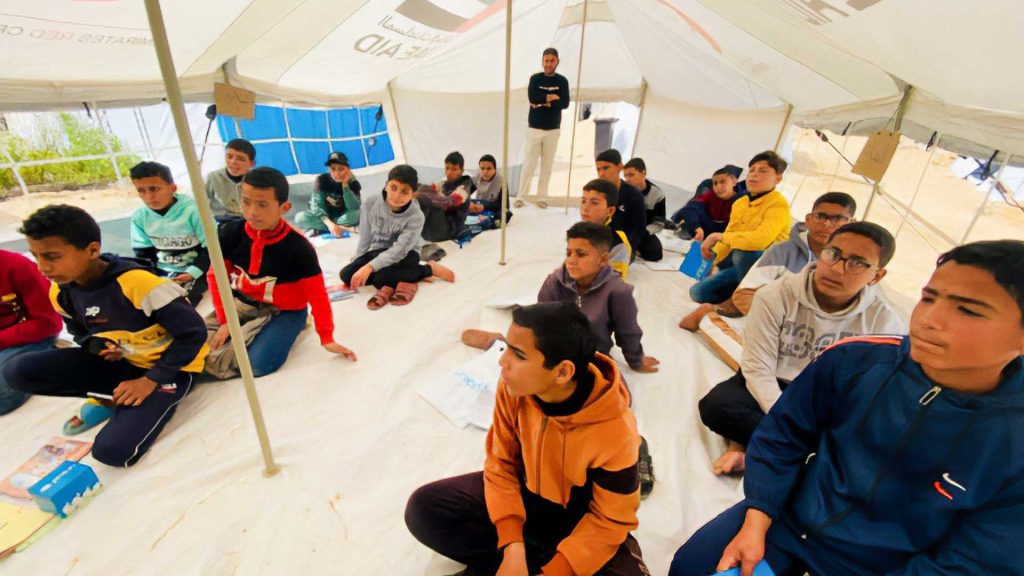Israel must allow humanitarian aid into Gaza – aid shipments have been blocked for two months

ISRAEL HAS BLOCKED aid shipments into Gaza for exactly two months. Urgently needed assistance is not far away. In fact, it’s right on the Gaza border. 116,000 tons of food aid are waiting and spoiling, enough to feed 2 million people living in Gaza for two months. Despite this, people in Gaza, especially children, are still at risk of starvation, in addition to the danger from Israel’s military actions.
“The situation is catastrophic and the suffering is deepening in Gaza. There is a total blockade of humanitarian aid that has lasted for two months and there is a dire shortage of everything essential,” says Sabina Bergholm, FCA Country Director.
“Such collective punishment is inhumane and contrary to humanitarian law,” Bergholm says.
The International Court of Justice has ordered Israel to ensure humanitarian aid access to Gaza. Like many other organisations, Finn Church Aid urges the serious need for Israel to allow humanitarian aid to reach the region.
After a brief ceasefire, the humanitarian crisis in Gaza has only worsened. The blockade of aid deliveries has led to a situation where a single sack of flour costs up to 300-500 US dollars, and the World Food Programme (WFP) announced on Sunday that its food stocks are already depleted or close to empty.
“International humanitarian law prohibits the starvation of civilians as part of warfare. Food and drinking water, which are vital for human survival, such as agricultural land and irrigation systems, must not be destroyed or denied use,” Bergholm says.
The situation in Gaza is now worse than at any time during the war. The food security of up to 91 per cent of Gaza’s approximately 2.1 million inhabitants is acutely threatened. People living in the midst of a prolonged blockade and war depend entirely on humanitarian assistance for their survival. In addition to food, Gaza is in short supply of clean drinking water, shelter and other basic necessities.
More than 90 per cent of Gaza school buildings destroyed
Israel’s military operations have been ongoing for a year and a half. Gaza is home to around two million people, half of whom are children. As always in crises and conflicts, children are the ones who suffer the most. According to UNICEF, every one of the approximately one million children in Gaza has serious trauma caused by the war and needs help to cope with it.
Every child has the right to education. In Gaza, that right has not been realised since October 2023. According to the UN, 92 per cent of the area’s school buildings have been destroyed, and approximately 685,000 school-age children in Gaza have not been able to attend formal school for over a year.
To help children in Gaza, FCA works with local partner organisations in Gaza to provide education and mental health support. The work focuses on Gaza City, Khan Younis and al-Bureij. In total, around a thousand children and young people have participated in projects run by FCA and its local partner organizations.
“A ceasefire must be achieved in the region and humanitarian aid must be delivered to Gaza immediately. The parties to the conflict must be called back to the negotiating table so that a lasting and just solution to the situation can be found.”
Appeal: Lasting peace is needed in the Middle East (Published 3.10.2024)
—
For more information:
FCA Country Director Sabina Bergholm,
+358 40 669 3930, sabina.bergholm@kua.fi